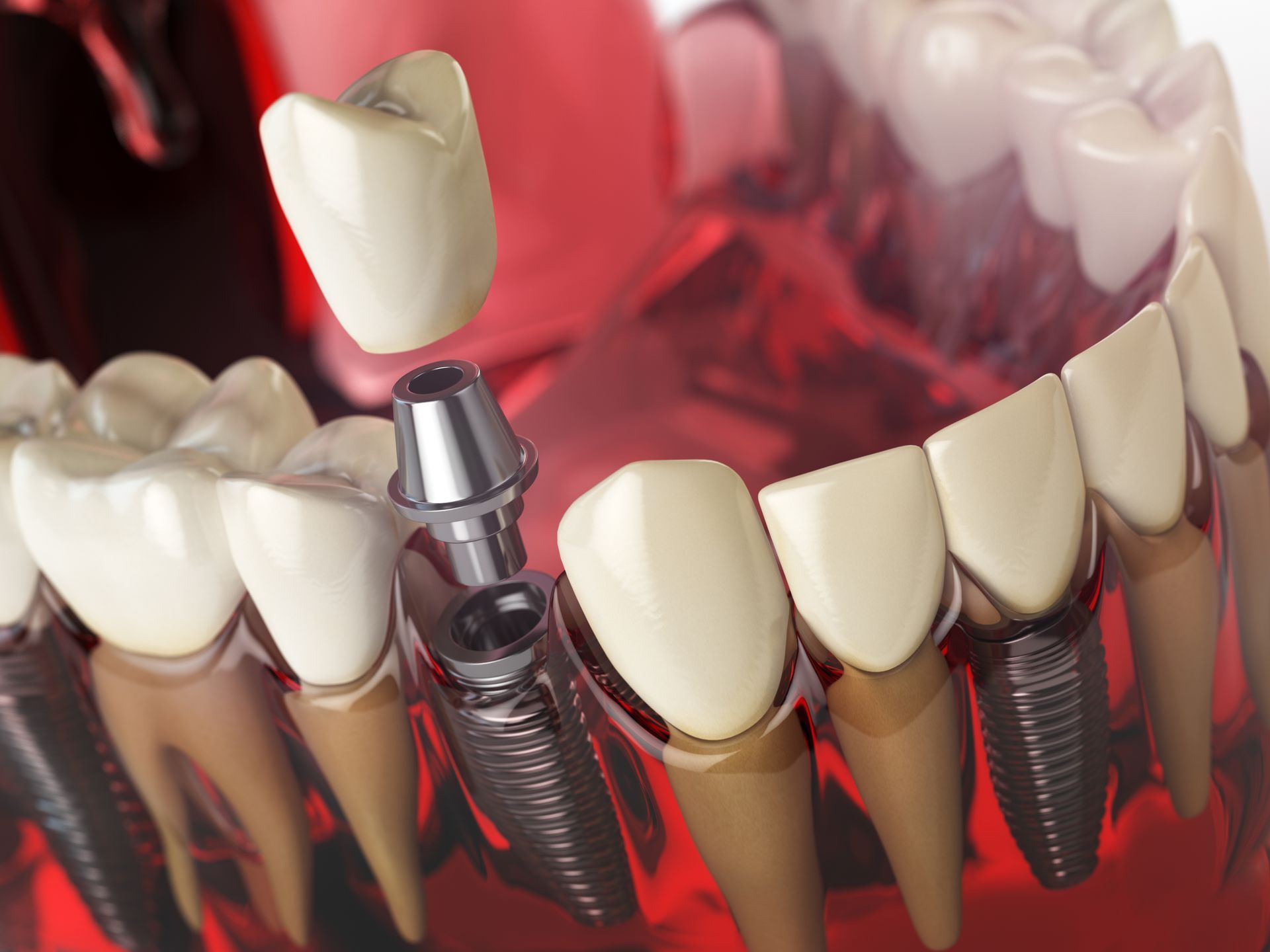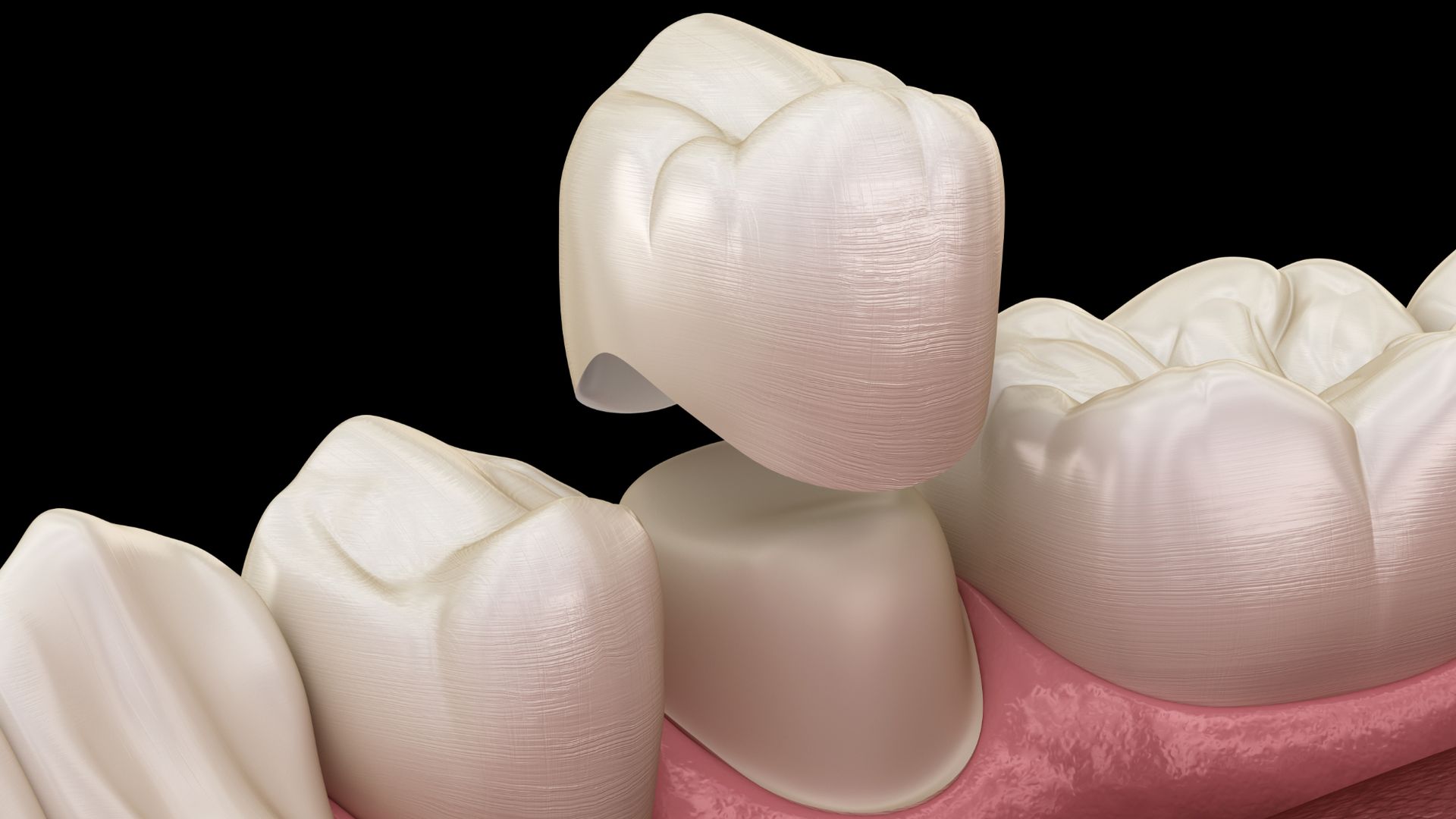Can You Fix Broken Teeth with Dental Implants? Here's What You Need to Know

Yes, can you fix broken teeth with dental implants? Dental implants are a reliable and long-lasting solution for severely damaged teeth. They replace damaged tooth roots with metal posts and broken teeth with artificial ones. This article explains how dental implants work, when they are needed, and the benefits they offer.
Key Takeaways
- Dental implants are a multi-component system involving a metal post, an abutment, and a crown, providing a stable and durable replacement for broken or missing teeth through a process called osseointegration.
- Dental implants are essential when a tooth is too damaged to be repaired, following tooth extraction due to infection or extensive damage, or when previous restorations like crowns or bonding have failed.
- The benefits of dental implants include long-term durability, improved oral health by maintaining bone density, and a natural look and function that enhances self-confidence and comfort.
Understanding Dental Implants
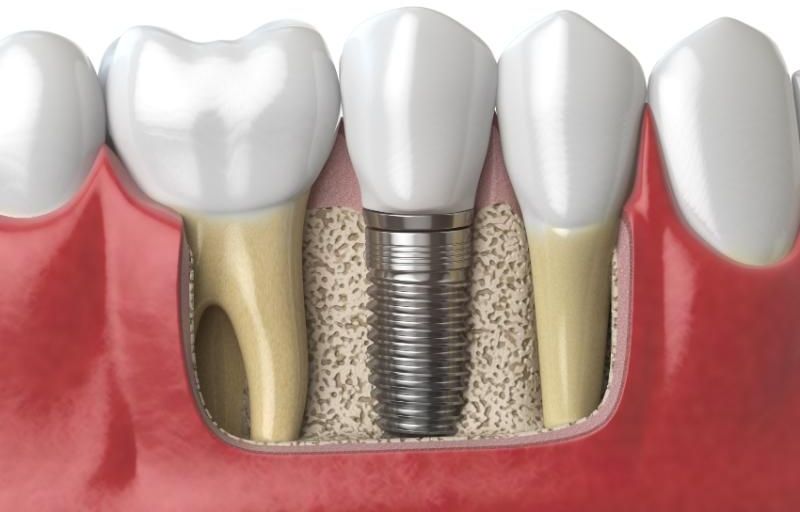
Dental implants innovatively replace tooth roots with metal posts and substitute damaged or missing teeth with artificial ones, effectively replacing missing teeth. Unlike dentures, which can slip and cause discomfort, titanium implants are firmly anchored in the jawbone, providing a stable and durable foundation for artificial teeth. This stability is achieved through a process called osseointegration, where the bone grows around and fuses with the implant, ensuring it stays in place.
Despite its simplicity, the structure of a dental implant is highly effective. It typically consists of three main components:
- The metal post, which acts as the root
- The abutment, which connects the post to the crown
- The crown, which provides the natural look and functionality of a tooth
Each part plays a crucial role in mimicking the function and appearance of natural teeth.
The process of getting a dental implant varies depending on the condition of the jawbone and the type of implant used. It usually involves several stages, including initial consultation, implant placement surgery, healing, and the final placement of the crown. This multi-step approach ensures that the implant integrates well with the jawbone, providing a long-lasting solution for broken or missing teeth.
Components of a Dental Implant
Comprising three primary components, a dental implant is quite comprehensive. These components are:
- The metal post: Usually made of titanium, it is inserted deep into the jawbone and serves as the root of the artificial tooth. This post provides a sturdy foundation for the abutment and crown, much like the root of a natural tooth.
- The abutment: This connects the metal post to the crown. It is placed on top of the metal post and acts as a connector.
- The crown: This is the visible part of the dental implant and is custom-made to match the color and shape of your natural teeth. It is attached to the abutment and completes the dental implant.
The abutment is attached to the top of the metal post and acts as a connector between the post and the crown. It ensures that the crown is securely attached and functions properly.
The crown is the visible part of the implant and is designed to look and feel like a natural tooth. Together, these components work harmoniously to restore the appearance and function of a broken or missing tooth.
How Dental Implants Integrate with Jawbone
The process of osseointegration largely determines the success of a dental implant. This is where the jawbone grows into and unites with the surface of the dental implant, providing a stable base for the artificial tooth. Osseointegration is a critical phase that determines the durability and stability of the implant. During this period, which can take several months, the bone heals around the implant, ensuring it stays firmly in place.
This integration process is essential for the long-term success of the implant. It provides a solid foundation for the new teeth and helps maintain bone health by stimulating the jawbone, preventing bone loss that often occurs with missing teeth. This natural fusion process underscores why dental implants are favored over other tooth replacement options.
When Are Dental Implants Necessary for Broken Teeth?
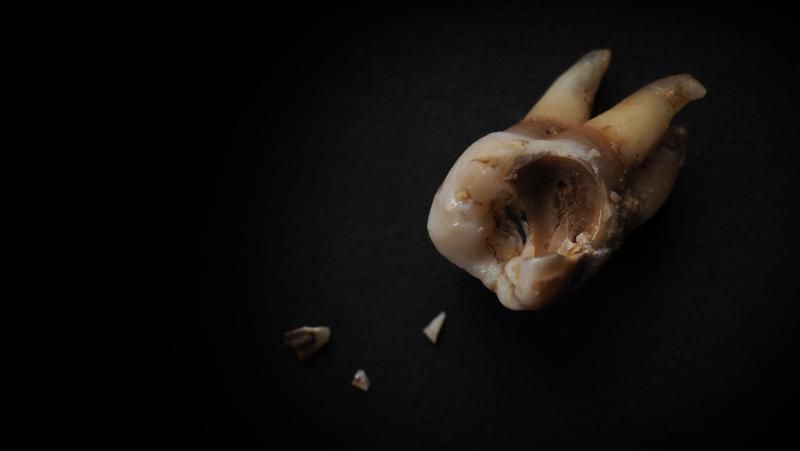
Dental implants often become necessary when a broken tooth is beyond repair. Severe cracks, breaks, or damage that compromises the tooth’s structure can make it unsalvageable. In such cases, replacing the broken tooth with a dental implant becomes the best solution. Dental implants are particularly beneficial because they provide a durable and long-lasting replacement, restoring both function and aesthetics.
Another scenario where dental implants are required is when a tooth needs to be extracted due to extensive damage or infection. Tooth extraction might be necessary when the tooth cannot be saved by other means, such as crowns or root canal therapy. Once the tooth is extracted, a dental implant can be placed to replace the missing tooth, preventing further complications like bone loss or shifting of surrounding teeth.
Lastly, dental implants are often used when previous restorations, such as crowns or dental bonding, have failed. Failed restorations can occur when the tooth structure cannot support them, leading to repeated issues and the need for a more reliable solution. Dental implants offer a stable and long-term option in such cases, ensuring that the patient does not have to deal with the same problem repeatedly.
Severe Cracks or Breaks
A durable and effective solution is crucial when dealing with a severely cracked or broken tooth. Dental implants are often the best option for a cracked tooth because they provide a stable and long-lasting replacement that can handle the pressures of daily use. Unlike temporary fixes, dental implants ensure that the broken tooth is replaced with a permanent solution that looks and functions like a natural tooth.
Tooth Extraction Due to Damage
Tooth extraction is sometimes unavoidable when a tooth is fractured beyond repair or severely infected. In such cases, dental implants become necessary to replace missing teeth, including the specific missing tooth in question. This not only restores the function and appearance of the tooth but also prevents further complications such as infections spreading to other teeth or bone loss.
Failed Previous Restorations
Previous restorations like crowns or dental bonding can fail, especially if the underlying tooth structure is compromised. In these situations, dental implants offer a more reliable and long-term solution. Implants provide the necessary stability and support that failed restorations cannot, ensuring the problem does not recur.
Benefits of Using Dental Implants to Fix Broken Teeth
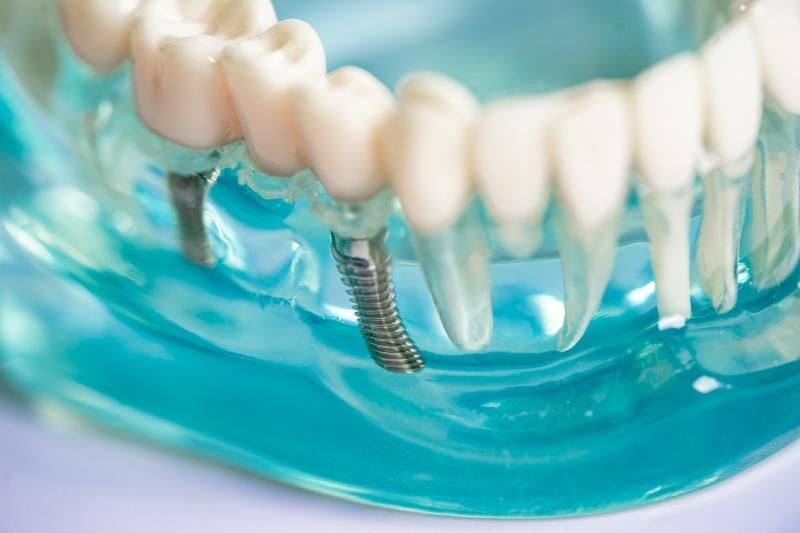
Choosing dental implants to fix broken teeth comes with several significant benefits:
- They provide a long-term solution
- They help maintain jaw bone structure
This longevity is one of the key reasons why many people prefer dental implants over other tooth replacement methods.
Another major benefit is the improvement in oral health that dental implants offer. By replacing a missing tooth, implants help maintain bone density in the jaw, preventing bone loss that can occur when a tooth is missing. They also prevent the surrounding teeth from shifting, which can lead to misalignment and other dental issues. Overall, dental implants contribute to better oral health and a more stable dental structure.
Finally, dental implants offer several benefits:
- They boost self-confidence by providing a beautiful smile.
- They allow you to eat, speak, and smile without any discomfort or embarrassment.
- They are a great choice for anyone looking to restore their smile after a broken tooth.
Long-lasting Solution
One of the standout benefits of dental implants is their longevity.
The durability of dental implants ensures that you won’t have to worry about frequent replacements or repairs, giving you peace of mind and a lasting smile.
Improved Oral Health
Dental implants play a crucial role in maintaining oral health. They:
- Prevent bone loss by stimulating the jawbone, much like natural tooth roots do
- Help to preserve bone density
- Prevent the weakening of the jawbone over time
Additionally, dental implants:
- Prevent the surrounding teeth from shifting, which can lead to misalignment and other dental issues
- Maintain the structure of your mouth
- Contribute significantly to overall oral health.
Natural Look and Function
Dental implants are designed to:
- Look and feel just like natural teeth
- Boost self-confidence
- Allow you to eat, speak, and smile without any discomfort or self-consciousness
The natural look and function of dental implants make them an excellent choice for anyone looking to restore their smile after a broken tooth.
Alternatives to Dental Implants for Broken Teeth
Though dental implants present a fantastic solution for many, they aren’t the sole option for fixing broken teeth. Depending on the severity of the damage and individual patient needs, several alternatives can be considered. These include dental bonding, dental crowns, and root canal therapy, each offering unique benefits and suited to different types of dental issues.
Dental Bonding
Dental bonding is a quick and cost-effective method for repairing a damaged tooth, especially minor chips or fractures. This procedure involves applying a tooth-colored resin to the affected area and shaping it to match the natural contour of the tooth.
One of the main advantages of dental bonding is that it does not require the removal of enamel, making it a reversible and relatively simple procedure.
Dental Crowns
Dental crowns are another popular alternative for fixing broken teeth. These caps are placed over the entire tooth to restore its shape, strength, and function. Crowns can be made from various materials, including metal, porcelain-fused-to-metal, and all-ceramic options, each offering different levels of durability and aesthetic appeal.
Crowns are particularly useful for protecting and restoring weak, damaged teeth or tooth breaks, especially when dealing with severely broken teeth.
Root Canal Therapy
Root canal therapy is often necessary when the internal structure of the tooth is damaged but the root is still intact.
A crown is usually placed over the tooth after a root canal to restore its function and appearance.
The Process of Getting a Dental Implant

Acquiring a dental implant is a comprehensive process involving several crucial stages that ensure the implant’s success and stability. It includes:
- Initial consultation
- Implant placement surgery
- The healing period for osseointegration
- Placement of the abutment and crown
Each stage is important for the overall success of the dental implant, with verification of successful waiting being a crucial aspect.
Initial Consultation
The initial consultation is a critical first step in the dental implant process. It involves a thorough dental exam, including X-rays and 3D images of your mouth to assess the condition of your jawbone and plan the implant placement. During this appointment, your dentist will also review your medical history to identify any conditions or medications that might affect the implant process.
A tailored treatment plan is then created based on the number of teeth needing replacement and the condition of your jawbone.
Implant Placement Surgery
Implant placement surgery is the next step, which involves the following:
- The oral surgeon makes a cut in the gum to expose the bone.
- Holes are drilled into the jawbone where the implant post will be placed.
- This surgery is usually done under local anesthesia to ensure comfort.
After the post is placed, a healing period is needed for the next phase.
Healing and Osseointegration
After the implant post is placed, the healing and osseointegration phase begins. This critical period allows the jawbone to grow around and fuse with the implant, ensuring it is securely anchored. This process can take several months and is vital for the stability and success of the implant. Factors such as good bone density, absence of infection, and maintaining proper oral hygiene significantly contribute to the success of osseointegration.
During this time, it is essential to follow your dentist’s post-operative care instructions to promote healing and prevent complications.
Placing the Abutment and Crown
Once osseointegration is complete, the next step is placing the abutment and crown. The process is as follows:
- Reopen the gum to expose the implant.
- Attach the abutment to the implant post.
- Allow the gum to heal for about two weeks.
- Attach the artificial tooth, or crown, to the abutment.
The crown, which is customized to match the shape and color of your natural teeth, is then placed onto the abutment, completing the restoration process. This final step ensures that the dental implant looks and functions like a natural tooth.
Factors Affecting Dental Implant Success
A multitude of factors, including bone density and health, overall oral health, and lifestyle habits, influence the success of dental implants. These elements play a critical role in determining whether the implant will integrate well and remain stable over time.
Bone Density and Health
Bone density and health are crucial for the stability and long-term success of dental implants. Higher bone density and quality lead to better outcomes, with Type I bone showing the lowest implant failure rates. If the jawbone is too soft or not thick enough, bone grafting might be required before implant placement to ensure the implant has a solid foundation.
Dental implants also help preserve bone density in the jaw by stimulating the bone, preventing resorption and loss of bone height.
Overall Oral Health
Good oral hygiene and regular dental visits are essential for the success of dental implants. Healthy gums provide necessary support and reduce the risk of infection, which is crucial for implant stability. Gum disease can damage bone and weaken the stability of dental implants, so maintaining gum health is vital.
Patients with severe periodontal disease are typically excluded from implant procedures due to high failure risks, emphasizing the importance of good oral health before and after the implant process.
Lifestyle and Habits
Lifestyle habits, such as smoking, can significantly impact the success of dental implants. Smoking doubles the implant failure rate due to its adverse effects on healing and blood flow. Avoiding smoking is crucial as it interferes with the healing process and increases the risk of complications.
Maintaining a healthy lifestyle and following your dentist’s advice can greatly improve the chances of a successful dental implant.
Potential Complications and How to Avoid Them

Despite the high success rate of dental implants, potential complications may still occur. Common issues include peri-implantitis, implant failure, and maintenance challenges, but these can be avoided with proper care and regular dental check-ups.
Peri-implantitis
Peri-implantitis is an inflammatory condition that affects the tissues around a dental implant and is caused by bacterial infection. Symptoms may include red or tender gums and bleeding during brushing. If left untreated, peri-implantitis can lead to bone loss and implant failure.
Good oral hygiene practices and regular dental visits are crucial for preventing this condition and ensuring the longevity of your implant.
Implant Failure
Implant failure can occur if the implant does not integrate properly with the surrounding bone or becomes loose over time. Common reasons for failure include improper integration and physical breakage of the implant components.
To mitigate these risks, ensure proper surgical techniques are used, maintain good oral hygiene, and regularly consult with a dental professional.
Maintenance Tips
Maintaining good oral hygiene and regular dental check-ups can help ensure the longevity of dental implants. Regular brushing and flossing are sufficient to keep implants clean and healthy.
Proper aftercare, including avoiding hard foods and following post-operative care instructions, is essential for the long-term success of dental implants.
Summary
In summary, dental implants offer a durable and effective solution for replacing broken or missing teeth. They provide a long-lasting replacement that looks and functions like natural teeth, contributing to improved oral health and self-confidence. The process of getting a dental implant involves several stages, each crucial for ensuring the success and stability of the implant.
Proper care and maintenance are essential for the longevity of dental implants. By maintaining good oral hygiene, avoiding harmful habits like smoking, and attending regular dental check-ups, you can ensure the success of your implants and enjoy a healthy, beautiful smile for years to come.
FAQ
Frequently Asked Questions About Dental Implants
Share This Blog




